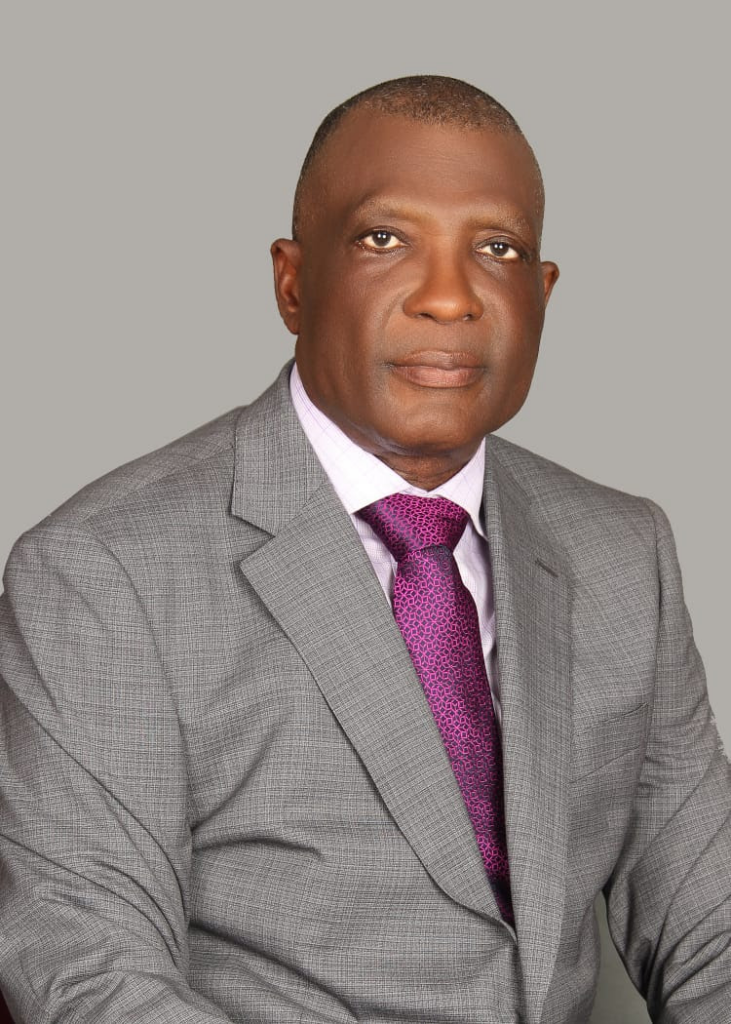- Last December, it came to light that a plantation company clearing forest in Indonesia was owned by two employees of Asia Pulp & Paper, a giant firm that has promised to stop deforesting.
- APP claimed the employees had set up the company on their own, without management knowing. But an investigation by Mongabay provides evidence that contradicts APP’s story.
- The findings place APP squarely in the middle of an emerging debate about the presence of “shadow companies” among the holdings of the conglomerates that dominate Indonesia’s plantation sector.
An investigation by Mongabay has uncovered new evidence suggesting one of the world’s biggest paper producers, Indonesia’s Asia Pulp & Paper, took deliberate measures to disguise its ownership of a controversial company engaged in deforestation. The revelation comes after repeated denials by APP that it owns the company, as its opaque corporate structure has been dragged into the spotlight.
Two of APP’s ex-employees interviewed by Mongabay said management had used their names on official filings for the company, PT Muara Sungai Landak, which has been cutting down tropical forest on the island of Borneo to make way for a pulpwood plantation now half the size of Manhattan. One said that he had received a monthly payment to compensate for the arrangement, and that he had been afraid to protest for fear of losing his job.
Their accounts, and that of a third ex-employee who provided insight into APP’s inner workings, contradict assertions made in recent months by the paper giant that it has “no relationship” with Muara Sungai Landak.
The findings place APP squarely in the middle of an emerging debate about the presence of “shadow companies” among the holdings of the family-owned conglomerates that dominate Indonesia’s plantation sector. Under pressure from civil society groups, many of these business groups have promised to stop deforesting. But it is becoming increasingly clear they are using a variety of methods to conceal their control of troublesome assets.
APP belongs to the billionaire Widjaja family, which has investments in a wide range of sectors, from real estate and banking to mining and agribusiness. In 2013, APP made its own pledge to stop deforesting. Greenpeace lent the commitment some legitimacy when it agreed to advise the firm on how to implement it.
Last December, though, APP found itself embroiled in scandal when the Associated Press published an exposé of its corporate structure. Among other revelations, the article showed Muara Sungai Landak to be owned through layers of holding companies by two employees of APP: a 36-year-old IT worker and a 43-year-old auditor. The findings suggested APP was using their names as proxies to hide its beneficial ownership of Muara Sungai Landak, and to secretly profit from the destruction of a massive rainforest in western Borneo.
In response to the article, APP denied controlling Muara Sungai Landak, claiming in multiple public statements and interviews that its employees had formed the company themselves, without management knowing. APP acknowledged a third employee was listed as a director of Muara Sungai Landak, but it said he had been “terminated” from his position at APP as soon as his involvement in the company was discovered. The other two employees, it said, had already left APP.
However, an investigation by Mongabay provides evidence that contradicts APP’s story. In fact, the firm’s links to the forest-destroying operation in western Borneo go much deeper than it has acknowledged. Interviews with the ex-employees of APP also indicate that efforts to obscure ownership links are being coordinated from within the conglomerate.
APP has acknowledged that three of its employees were involved in Muara Sungai Landak. But a review of corporate records by Mongabay turned up the names of three more people who appear to have been employed by APP at the same time as they were listed as officers of Muara Sungai Landak.
Mongabay tracked down two of these individuals. Both said APP’s management had used their names on Muara Sungai Landak.
“The company was run by other people,” one of them said. He said he had had “no other option” but to accept the arrangement.

Mongabay can also reveal the company buying most of Muara Sungai Landak’s timber has similar behind-the-scenes ties to the Widjajas’ conglomerate. The company, PT Cakrawala Persada Biomas, operates a wood-pellet mill in western Borneo. Corporate records show its two directors are a pair of ex-senior executives with the Widjajas’ palm oil arm. At least one of them was employed by the Widjajas at the same time as he was listed as an officer of the milling company. Neither man could be reached for comment.
A spokesperson for Widjajas’ palm oil arm said she couldn’t comment on the milling company because “we are not involved in this entity.” The controlling stake in the company is ultimately held by a pair of firms incorporated in offshore secrecy jurisdictions — the British Virgin Islands and Labuan, Malaysia.
A third officer of the milling company has worked for several Widjaja family insurance companies as well as for a foundation co-founded by patriarch Eka Tjipta Widjaja. Reached by phone, the man acknowledged his association with Cakrawala Persada Biomas, but said he could not remember if he had been listed as a commissioner or a director. Informed he was a commissioner, he advised Mongabay to speak with the director and got off the line.
This man’s role in the milling company raises particular doubts over one of APP’s central defenses to the allegations to date. APP has claimed its employees went to work for a third party, or set up their own company, without its knowledge or consent. But this man’s role in the Widjajas’ conglomerate had, on paper, nothing to do with its agribusiness operations.
A similar sentiment was voiced by one of the APP employees whose names appeared on Muara Sungai Landak’s official filings, and who worked in the same Jakarta office as the three people whose involvement in the plantation company APP acknowledges. Asked whether any of those three people could have possibly set up and run the company themselves — a mammoth undertaking requiring the acquisition of business permits from multiple levels of government, access to capital and heavy machinery — the employee answered with surety: “Never,” he said. “Never.”
Another former APP employee who remembered working with one of the aforementioned trio agreed, saying it was not credible the named individual could have run the company. “Because he doesn’t have the capability to so,” she said, speaking on condition of anonymity because she feared retaliation from the conglomerate. “To manage a concession area, you have to have fieldwork skills. You have to know how to plant and to harvest and to bring the wood to the mill, and I don’t think he has that kind of capability, to be honest.”
One of the two APP employees who said his name was used for Muara Sungai Landak was cagier than the other, reluctant to describe in great detail how the system worked and eager to get off the phone. But he was clear: the company was not his. “Everything was based on [the conglomerate’s] initiative,” he said. “There’s no way I nominated myself [to serve as director].”
For APP, the findings have ramifications beyond Muara Sungai Landak. The paper giant is also under fire over its relationship with 24 other plantation companies supplying its mills with raw materials. APP has always referred to these companies, which have been linked to illegal fires and deforestation, as “independent,” not owned by or otherwise affiliated with it. But recent NGO and media reports indicate they are owned by a handful of APP employees in what has the appearance of a concerted scheme. The paper giant denies secretly owning these companies.
In the five years since APP promised to stop clearing forest, Muara Sungai Landak has bulldozed nearly 30 square kilometers (12 square miles) of rainforest. The company’s license spans a total of 130 square kilometers (50 square miles) — an area larger than Barcelona — and stretches into a confirmed habitat of the critically endangered Bornean orangutan (Pongo pygmaeus).

Almost the entire land concession lies on peat soil, according to an analysis published by Greenpeace in May. In recent decades, Indonesia’s vast peat swamp zones have been drained and dried by plantation firms, rendering the peat highly combustible. In 2015, peat fires in Indonesia blanketed the archipelago and neighboring countries in a choking haze, sickening half a million Indonesians, per government figures, and sending greenhouse gas emissions skyrocketing. APP has promised to stop clearing not just forest but peatland too.


If the Widjaja family really is controlling Muara Sungai Landak, it would be violating more than just a voluntary pledge. In 2016, Indonesian President Joko Widodo signed into law a moratorium on all new peatland clearance. But Muara Sungai Landak was clearing deep peat well into last year, according to Greenpeace.
Greenpeace in May severed its relationship with APP, saying it had been deceptive since the ownership scandal had broken, and demanding that it take action over the forest destruction in Muara Sungai Landak’s concession. But in response, APP reiterated its claims that “MSL ha[s] no relationship with APP and none of their wood comes through our supply chain.” It added: “That remains true to this day.”
Asked about Mongabay’s latest findings, Elim Sritaba, APP’s sustainability director, chose not to address the fact that at least six of its employees have been named on official filings for Muara Sungai Landak, or the claim that its workers’ names are often used on such companies.
Sritaba did say no one was ever “compensated” to be listed as a director of Muara Sungai Landak, calling that claim “false and baseless.”
“We welcome criticism into our organisation, because we believe that it helps us do better,” Sritaba wrote in an email, “but at the same time, if we spent all our time defending ourselves against baseless attacks, we would lack resources to be able to fast track critical work that needs to be done to combat climate change.”

‘Best not to protest’
One of the former APP employees who said his name had been used for Muara Sungai Landak recalled how it had dawned on him that his name had been attached to the company.
It started when the legal team at his skyscraper office in Jakarta began bringing him documents to sign for heavy equipment rentals.
“Then you realize, oh, you are appointed as a board member,” he said. “But then again, they already prepare everything for you. So you have no other option.”
At APP, he said, it was standard practice for employees’ names to be used on companies like Muara Sungai Landak. The more senior you were, the higher-profile company your name could be attached to. “So if you hit a certain level — senior manager, general manager — there will be a high risk that you’ll be appointed to become one of the board members,” he said.
This employee had been a little lower on the totem pole, so it made sense his name had been used for a company like Muara Sungai Landak, he said, rather than for a bigger one like Arara Abadi, which APP acknowledges owning.
“Everything was based on APP’s initiative. There’s no way I nominated myself”
The employee maintained no one had ever asked permission to use his name for the company. They didn’t need to — APP already had his personal information. “Once you enroll in a position, you fill in your CVs, right?” he said. “You also provided your IDs. That should be enough for [management] to appoint you.
“I mean, they already have your IDs. They just come to a notary and establish a company or, I don’t know. Meaning that to a certain extent they may not use your prior consent to appoint you as the board member.”
His account of this practice was confirmed by another former APP employee who worked in the same Jakarta office. (Her name did not appear on Muara Sungai Landak.) She said it was common for her colleagues to be named as officers of such companies. Some of them actually managed the companies, while others “were just there for the sake of the paperwork,” she said. “I cannot say it’s a black and white kind of situation,” she added. “It’s more greyish.”
The employee who described signing papers for Muara Sungai Landak said he had never actually participated in its management. He didn’t even know who bought the timber it produced. He received some 1 million rupiah ($70) per month in compensation for the arrangement, he said, as was standard at the conglomerate.
If the whole thing made him uneasy, he didn’t raise a fuss. “As long as you want to work for [APP],” he said, “I guess you will understand it is best for you not to protest such decisions.”

Early signs
Around the time APP promised to stop deforesting, investigators with Eyes on the Forest, a coalition of NGOs that includes WWF and several Indonesian groups, noticed bulldozers at work in Muara Sungai Landak’s concession.
They began to use drones to monitor the concession. On trips to the field, they identified orangutan nests and measured the depth and extent of the peat. That’s when they heard from villagers living near the plantation that it belonged to the Widjajas’ conglomerate, the Sinarmas Group.
To check the villagers’ claim, the NGO investigators pulled the deeds of incorporation and notary acts for Muara Sungai Landak and its web of holding companies from a government office in Jakarta. The publicly available documents revealed the names of the shareholders, directors and commissioners for each company. An online search indicated that some of these people were APP employees. They listed it on their LinkedIn profiles, for example.
Eyes on the Forest did not want to confront APP unless they had definitive proof it was really controlling Muara Sungai Landak, said Ian Hilman, who is based in western Borneo for the coalition. They continued to monitor the concession, in 2015 releasing a report showing how much forest Muara Sungai Landak had destroyed.
But the signs were there, Hilman said. Muara Sungai Landak was registered to a building at the Sinarmas Land Plaza in Jakarta. And although it was a relatively small concession at 130 square kilometers — some of APP’s concessions are more than 20 times as large — there was evidently big money behind it.
“It’s strange,” Hilman said, that the owners of Muara Sungai Landak were a pair of office workers, “because if you see on the ground, MSL has a big investment — to rent the heavy machinery, to dig the canals, to build a road.”

There were other indications Muara Sungai Landak was an APP operation.
As recently as last December, a map on APP’s website showing fire hotspots clearly listed Muara Sungai Landak as one of the paper giant’s “partner” concessions in Borneo. The map, seen by Mongabay, has since been taken down. Sritaba, the APP sustainability director, said in an interview in February that Muara Sungai Landak had been mistakenly included in the map.
Another document, produced in 2007 by APP and seen by Mongabay, includes Muara Sungai Landak on a list of concessions where the paper giant was planning to expand.
Earlier this year, Greenpeace discovered that another pulpwood plantation company ultimately owned by the Widjaja family was clearing forest in southern Borneo. When the environmental group confronted APP about it, the paper giant said the company, PT Hutan Rindang Banua, was outside its jurisdiction, since it belonged to a different arm of the Widjajas’ conglomerate to which the sustainability commitment did not apply.
“One one side, they talk about cleaning up their act, but on the other side they continue to deforest,” Rusmadya Maharuddin, a forest campaigner with Greenpeace, told Mongabay.

Trust issues
Despite the raft of pledges to refrain from clearing forest made by firms such as APP, Indonesia’s alarming levels of deforestation have continued. Since 2013, the country has lost an area of rainforest larger than South Carolina, the second most in the world after Brazil, according to new data from the University of Maryland. The destruction is concentrated in Borneo, though it is shifting eastward in the archipelago as companies seek out new territories on which to expand.
As a steady stream of offshore leaks such as the Paradise Papers heightens scrutiny on such practices, environmental campaigners are increasingly turning their attention to opaque corporate structures, a legacy of the family-run, dynastic business groups that came to dominate the Indonesian economy during the military dictatorship that lasted for 33 years to 1998. These families are running into difficulties as the exposure of their operations highlights gaps between what they claim to be doing in order to fend off reputational pressures and what they are actually doing.
Just last week, Martua Sitorus, co-founder of palm oil giant Wilmar International, was forced to resign after Greenpeace highlighted his role in another palm oil business, Gama, that he was running with his brother. Since 2013, when Wilmar promised to stop deforesting, Gama has cleared an area of Indonesian rainforest twice the size of Paris, according to Greenpeace.
The announcement by Wilmar followed the release of a report by risk analysis group Chain Reaction Research alleging that several of Indonesia’s biggest palm oil firms, owned by some of the nation’s wealthiest families, are using “shadow companies” to hide their control of controversial assets, while at the same time professing to adhere to sustainability policies such as those required by membership in certification bodies like the Roundtable on Sustainable Palm Oil.
APP has continued to claim that Muara Sungai Landak was formed by rogue employees. In May, the paper giant said would hire a major accounting firm to “look into the shareholding of all forestry businesses in Indonesia to determine if any APP employees are involved in businesses that present a conflict of interest.” APP still intends to carry out the audit, Sritaba wrote in an email last week.
Meanwhile, the government is taking measures to increase transparency. In March, Indonesian President Joko Widodo issued a decree requiring companies to disclose their beneficial owners within a year.
“The hope is that it can be enforced, and each entity will declare the beneficial owners,” Sulistyanto, deputy head of the prevention bureau at Indonesia’s anti-corruption agency, told Mongabay.
In the particular case of APP, Greenpeace’s Rusmadya was more skeptical. “This is not a firm that is prepared to lead the way in the fight against deforestation,” he said. “They’re not transparent.”
Additional reporting by Hans Nicholas Jong and Aseanty Pahlevi.
Banner: A Bornean orangutan. Image by Rhett A. Butler for Mongabay.
FEEDBACK: Use this form to send a message to the author of this post. If you want to post a public comment, you can do that at the bottom of the page.
This story first appeared on Mongabay
South Africa Today – Environment
This article is licensed under a Creative Commons Attribution-NoDerivatives 4.0 International License.
You may republish this article, so long as you credit the authors and Mongabay, and do not change the text. Please include a link back to the original article.












